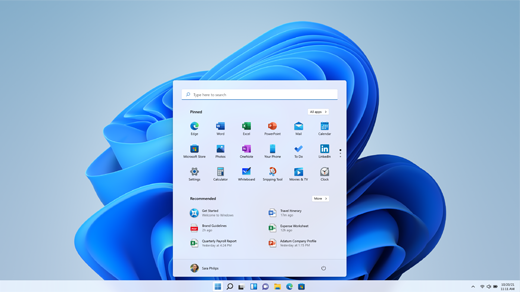
Is Microsoft Trying to Force you
to Upgrade to Windows 11?
Why?
Support for Windows 10 will end on October 14, 2025.
After this date, Microsoft will not longer provide free software updates from Windows Update, technical assistance, or security fixes for Windows 10.
Your computer will still continue to work, but Microsoft recommends that you move to Windows 11.
What Does “Continue to work” Mean?
It means that there’s no need to panic – at least, not yet. Things will not stop working immediately. But it does mean that if something goes wrong, Microsoft won’t help you.
Of course, it’s debatable that you’ll see much difference in the level of support from Microsoft, except in the area of Updates. They never were much for helpful support in my experience.
Eventually, you’ll probably need to move off Windows 10 to something else. See what your choices are below…
Ask Leo Video
Here is a very level-headed discussion of the Windows 10 to Windows 11 update issue. I agree with most of what he says, except what he says about Microsoft forcing you to buy a new computer in order to go to Windows 11. He says that no one is forcing you to do that, but if you have to use Windows, and cannot make the choice of going to another operating system, for whatever reason, and you are running Windows 10 on a machine that Microsoft will not support running Windows 11, then, yes, Microsoft is forcing you to buy a new computer.
Here’s some more wisdom on this subject from Leo:
What’s the Problem?
If your current computer is capable of running Windows 11, that’s probably what you should move to. But, as with every version of Windows, expect some significant changes, some of which will be a challenge, not the least that you’ll have some re-learning to do. Microsoft has a habit of making changes for no apparent reason, and doesn’t seem to consider the millions of users out there who will have to be re-trained.
But many computers – even relatively new ones – aren’t capable of running Windows 11 (or Microsoft is not supporting them).
How Do I Find Out Whether My Computer will Run Windows 11?
This YouTube video shows you how:
If it says that your CPU processor isn’t compatible, then you’re pretty much out of luck. You can’t go to Windows 11 on this machine, and you will eventually have to make a choice.
Note that it may be possible to turn on TPM 2.0 for your computer. Not all computers have this capability.
TPM 2.0 is a hardware-based security chip that provides secure functions like storing encryption keys and authentication credentials to protect a computer from malware and other cyberattacks. It is a requirement for Windows 11.
If you want to find out how to turn on TPM 2.0 for your computer, here’s a video to guide you through that (note that there may be some variation in what your computer will display during this special boot sequence):
OK, So What If I find that My Computer Supports Windows 11?
You probably should upgrade to Windows 11. Here’s how you can do that:
First: Backup your system! This is very important! Who knows what will happen in the upgrade process? It’s better to be safe than sorry.
The easiest way is to go to your Windows 10 Settings, and click on the Updates section. Once you have set things up correctly, you simply tell the Update process to do the upgrade for you. It will take some time, and will probably reboot on you several times, and finally it will boot up Windows 11, with its new interface. Now, you will have some re-learning to do, and finding your way around all over again.
What If They Tell Me that My Computer Does Not Support Windows 11?
Here, if you want to continue to use Windows, and you don’t want to buy a new computer, you have a couple of choices:
Choose to Install Windows 11, Regardless
There are ways to do that. Microsoft has been closing down a lot of those options, but you can probably do it. Should you? Microsoft won’t support you if anything goes wrong. (Of course, Microsoft won’t support you if you do nothing and stay on Windows 10, either.)
Here is a video that shows you how to do this. I make no claims about how legal this might be, nor do I endorse it. While it’s possible to do, I don’t think it’s a good idea, as Microsoft will not help you in any way if anything goes wrong.
Enroll in Microsoft’s Extended Security Updates (ESU) Program
This is a way of extending support for Windows 10, for a limited time – initially for a year, but who knows?
Learn all about ESU here:
Summary
Here’s a good summary of the situation. It goes into other alternatives, such as switching to Linux, but I’ll be covering that later.
But There Are Other Possibilities
See Other Options.